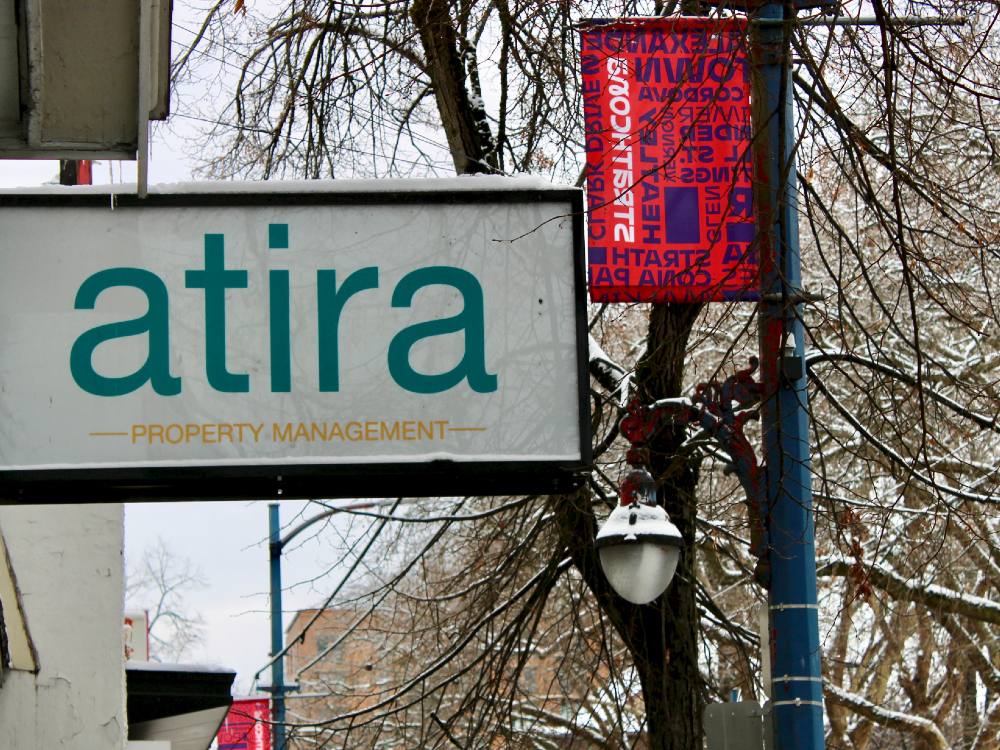The board of Atira Women’s Resource Society says it has full confidence in CEO Janice Abbott, and is refusing a request from BC Housing to return a $1.9 million surplus, following a scathing government report and pressure from BC Housing’s current board chair to replace Abbott.
Atira’s board chair, Elva Kim, made the comments in a letter to BC Housing board chair Allan Seckel. The letter is signed by the rest of AWRS’ board.
The forensic investigation by accounting firm Ernst & Young found a pattern of mismanagement that allowed former BC Housing officials to spend millions in public money without proper scrutiny.
A key finding of the report was that the former CEO of BC Housing, Shayne Ramsay, had repeatedly violated a conflict of interest protocol. Auditors found that Ramsay, who has been married to Abbott since 2010, frequently got involved in discussions about Atira and often pushed for projects and funding to be directed to the organization.
Ramsay did not reply to a request for comment for this story.
Since 2016, Atira’s funding has grown at a much faster rate than other large supportive housing providers. In 2022, the non-profit received $74 million in funding from BC Housing, up from $17 million in 2016.
The non-profit is now the largest supportive housing provider in B.C., despite years of financial problems and complaints about worker and tenant safety in the buildings they operate. Last April, two supportive housing residents died when the Winters Hotel, a building operated by Atira’s property management subsidiary, burned down.
Abbott has been CEO of Atira since 1992, while Ramsay helmed BC Housing from 2000 to 2022.
The forensic investigation did not find that Ramsay or Abbott had enriched themselves with public money and it did not find that Atira had misused money from BC Housing.
On Monday, Premier David Eby told reporters that funding for new projects for Atira will be frozen while an operational review of Atira takes place to further examine the housing provider’s operations and finances. All of the buildings Atira operates will also be physically inspected.
The Tyee has previously reported that multiple senior BC Housing staff had had concerns about conflict of interest violations since 2010, and tried to report those concerns to the board numerous times.
According to interviews with several former staff, Ramsay constantly discussed Atira projects and pushed for projects to be given to Atira. Former staff have told The Tyee Ramsay would make remarks like “this meeting never happened.”
The forensic investigation report says investigators reviewed messages where Ramsay “appears to direct other BC Housing employees to assist him in concealing his involvement in Atira-related matters.” The investigators also found several emails from Abbott to BC Housing staff where Ramsay had been blind copied.
Ramsay left BC Housing in August 2022 and is now executive vice-president of real estate and development at Nch’ḵay̓ Development Corp., the entity responsible for developing Sen̓áḵw on behalf of the Squamish Nation.
The report also highlights several property purchases made by Atira with help from BC Housing. Investigators pointed out that in 2022, Atira appears to have purchased a single-room occupancy hotel building, 303 Columbia, using $2 million of restricted funds, most of which was money from budget surpluses. But surpluses are supposed to be returned to BC Housing, and Ernst & Young auditors say Atira’s decision to use the surplus to buy a property was a violation of their operating agreement with the Crown corporation.
After auditors pointed this out to BC Housing, the Crown corporation told Atira it would not approve the use of the $2 million to buy 303 Columbia. Atira then told BC Housing staff it would be unable to pay its workers and BC Housing staff then gave the non-profit a $1.4 million grant, according to the Ernst & Young report.
In a lengthy response posted to their website, Atira Women’s Resource Society asserted there were several inaccuracies in the Ernst & Young report. The statement also denied that Abbott ever directed staff to contact BC Housing staff directly to discuss projects. Atira also says that the reason it receives more BC Housing funding is because it now operates more units of supportive housing than other providers.
Regarding 303 Columbia, Atira says in its response that a BC Housing staffer told Abbott “he agreed in principle to Atira’s use of restricted funds” to purchase the building. The organization says it has now paid that money back to BC Housing.
In a letter dated May 4, BC Housing board chair Allan Seckel told Atira that BC Housing has determined Atira’s surplus to be $1.9 million for 2020 and 2021. “We require the surplus to be returned immediately,” Seckel wrote. In addition to telling Atira that its leadership must be “renewed,” Seckel also told the organization the BC Housing board “strongly request[s] that Atira create a board position for a government-appointed observer to ensure greater transparency and communication.”
In response, Atira board chair Elva Kim wrote that Atira will continue to hold the $1.9 million until BC Housing completes a review of the 2021 fiscal year. Kim wrote that Atira is open to putting a government observer on its board, but “we will need to receive more information about the observer’s proposed role and status.”
Kim wrote that because the Ernst & Young report did not find financial wrongdoing, Atira’s board refuses to terminate Abbott or any other senior staff. ![]()
Read more: Rights + Justice, BC Politics, Housing
















Tyee Commenting Guidelines
Comments that violate guidelines risk being deleted, and violations may result in a temporary or permanent user ban. Maintain the spirit of good conversation to stay in the discussion and be patient with moderators. Comments are reviewed regularly but not in real time.
Do:
Do not: